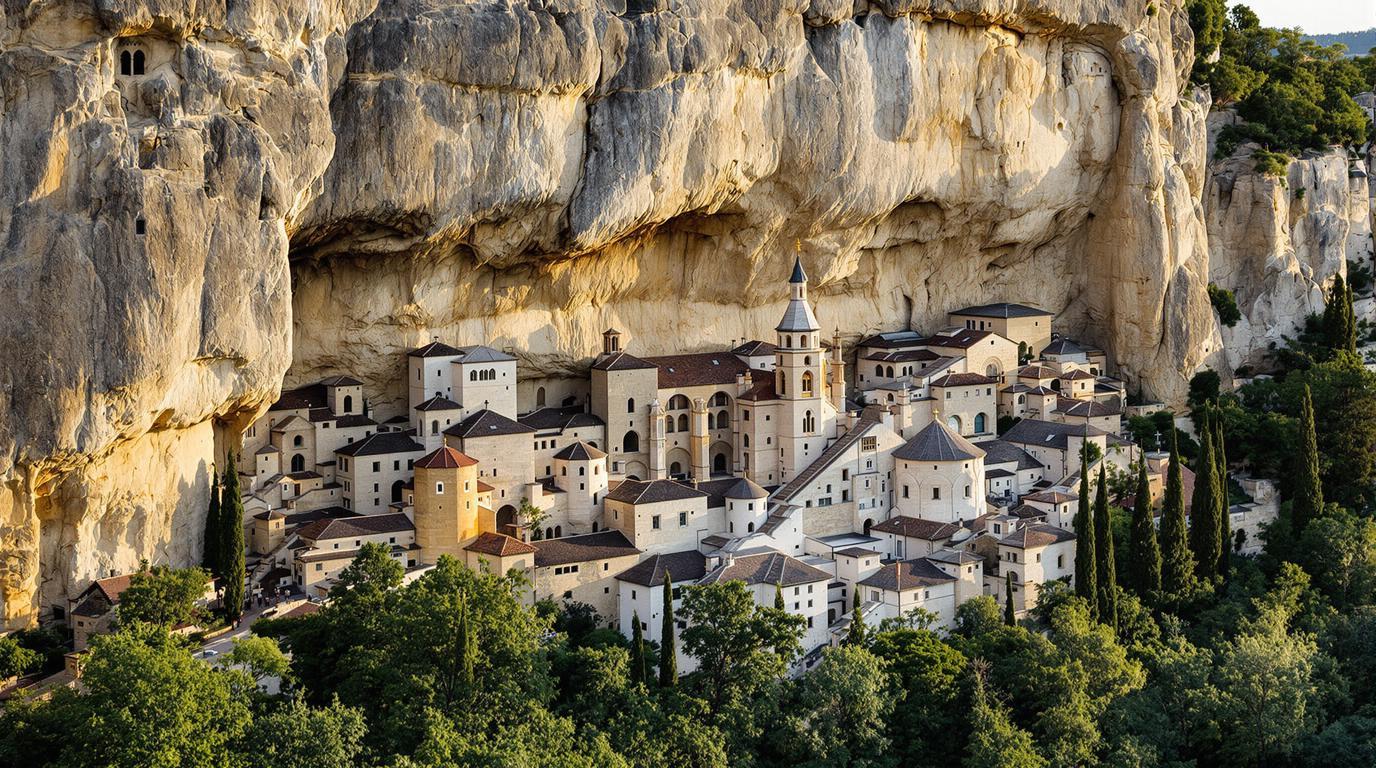The scent of wild lavender mingles with ancient stone as I step onto the weathered cobblestones of Rocamadour’s sacred pathway. Clinging impossibly to a sheer limestone cliff, this medieval pilgrimage site has drawn the faithful for centuries, yet somehow remains refreshingly uncrowded. While tourists flock to Mont Saint-Michel and Saint-Émilion, this vertical village in France’s rugged Dordogne offers something increasingly rare: authenticity without pretense.
Where medieval devotion meets geological wonder
Rocamadour isn’t merely built on a cliff—it’s carved into it. Seven ancient churches stack dramatically upward, connected by a grand staircase of 216 steps that pilgrims once ascended on their knees. The village dates to the 12th century when the supposed tomb of Saint Amadour was discovered, transforming this remote outpost into a center of Marian devotion rivaling Santiago de Compostela.
“For us, Rocamadour isn’t just history—it’s living heritage,” explains Mathieu, a local guide whose family has resided here for generations. “The same bells that called medieval pilgrims still mark our days.”
Unlike other medieval French villages that attract overwhelming crowds despite tiny populations, Rocamadour maintains a serene atmosphere even in summer, particularly before 10 am and after 4 pm.
Three secret experiences beyond the postcard views
The candlelit pathway that reveals ancient devotion
Skip the shuttle and arrive before dawn to walk the Chemin de Croix (Way of the Cross) in solitude. This steep path zigzags up the cliff face, marked by 14 stone crosses. In early morning mist, with lanterns illuminating your way, the spiritual weight of centuries feels palpable. The path deposits you at the Château, offering spectacular panoramas of the Alzou Canyon without another soul in sight.
The shepherd’s cave that transforms at dusk
A twenty-minute hike from the village leads to Grotte des Merveilles, where prehistoric paintings date back 20,000 years. More remarkable is what happens after closing time—local shepherd Marcel opens his small cave-turned-fromagerie nearby, where he ages raw-milk Rocamadour cheese. His evening tastings pair regional wines with cheese so fresh it practically leaps off the plate.
The forgotten chapel with celestial acoustics
While tourists crowd the Chapelle Notre-Dame, slip away to Saint-Blaise Chapel at the northern edge of the sanctuary. This humble space hosts impromptu concerts by local musicians who come for its exceptional acoustics. The stone walls amplify even whispered melodies into haunting echoes that rival the grandeur of more famous French abbeys with their baroque splendor.
Savoring black diamond treasures from beneath the earth
Forget the tourist restaurants along Grand Rue. Instead, follow locals to L’Esplanade, a family-run establishment where three generations have perfected the art of truffle cuisine. Their signature omelet showcases fresh Périgord black truffles harvested from nearby oak forests, their earthy perfume infusing each bite with complexity that defies description.
“We don’t serve food,” explains chef-owner Philippe with a knowing smile. “We serve the essence of our landscape—limestone, oak, and centuries of patience.”
Planning your escape to vertical paradise
Timing your visit
May and September offer perfect weather without summer crowds. If you must visit in summer, stay overnight—the village transforms after day-trippers depart. Winter brings atmospheric fog and near-solitude, though some businesses close.
Where to rest your head
Splurge on Hôtel Les Esclargies, where clifftop rooms offer valley views that change hourly with the light. Budget travelers should consider affordable guesthouses in nearby villages where prices drop significantly just 10 minutes from Rocamadour.
The silent conversation between stone and sky
As twilight descends, I find myself alone on the ramparts, watching swallows dive through golden light. In this moment, Rocamadour reveals its most precious gift: the space to breathe, wonder, and connect with something larger than ourselves. Some places shout their history; Rocamadour simply invites you to listen.
